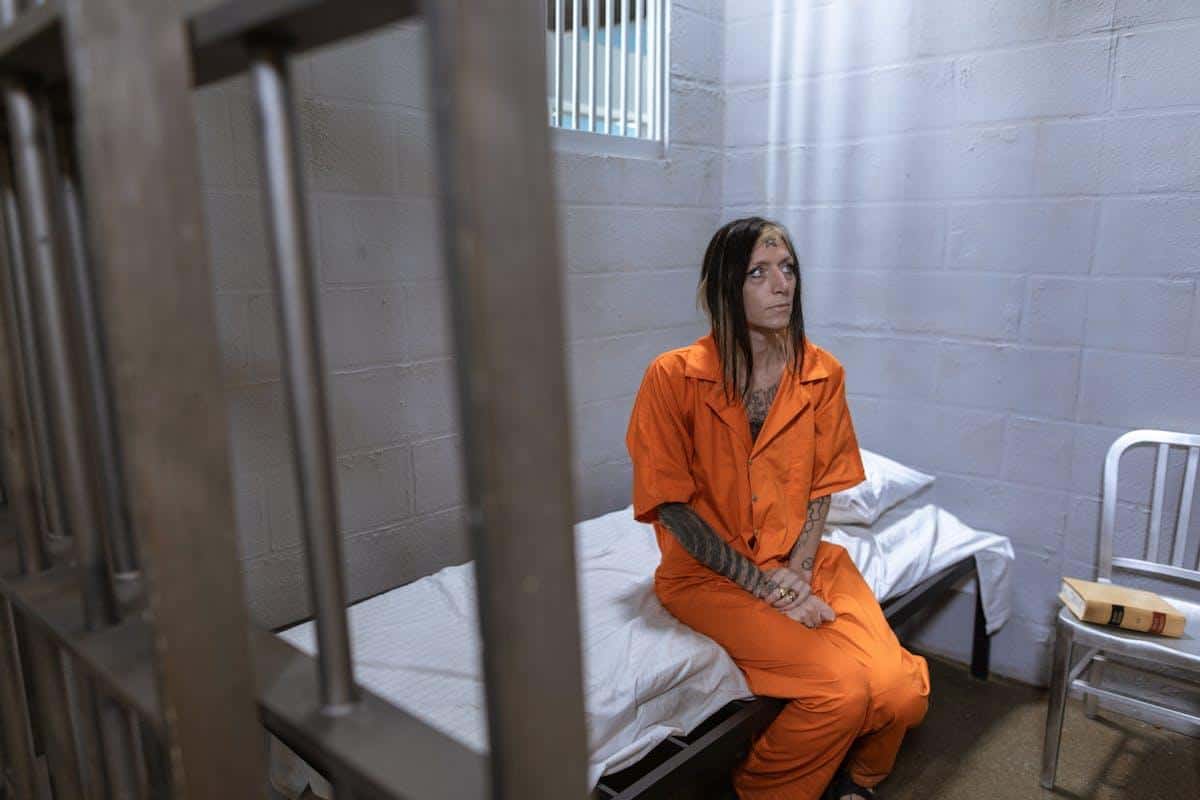Inmate rights Orange County CA denote the provisions given to incarcerated persons, focusing not only on their welfare and safety but also on the preservation of their human dignity. These rights are a global subject, tracing through the annals of human history and transcending societal, cultural and geographical boundaries.
This subject carries immense significance because it scrutinizes society’s ability to uphold fundamental human rights even in circumstances where said individuals have deviated from law-abiding conduct. While individuals are subject to punishment when found guilty by a court of law, the sanctity of their innate human rights remains inviolate.
Orange County in California serves as an intriguing case study for these inmate rights due to its particular combination of state legislation, demographic composition, and local initiatives. It is central at this point, therefore to consider what constitutes inmate rights within this county relative to other states within the US.
Moreover, gauging how such standards compare with national averages gives us a richer perspective on whether Orange County remains true to the ethos of its penal system – that being justice and rehabilitation over mere containment or punishment.
Framing our understanding further into who these inmates are is crucial for context. They represent a subset of constituents whose primary interactions with societal structures occur via punitive measures rather than rehabilitative or productivity-enhancing avenues.
Therefore, examining their rights speaks volumes about our collective commitment towards fostering empathy within criminal justice procedures might seem paradoxical initially but forms part paramount discourse on effective prison systems. The scope spans across ensuring safe living conditions and access to legal counsel right through mental health care and rehabilitative services thereby emphasizing viewing treat every inmate as an individual first followed by being a prisoner.
Background of Inmate Rights
In the early United States, inmates were considered mere slaves of the state. In contrast to free citizens’ rights, they held no constitutional protections and were exposed to inhumane conditions. However, society witnessed a reevaluation of this notion in the 20th century with the landmark case ‘Weems v. United States,’ which pronounced excessively cruel punishments as unconstitutional. Several other cases followed, progressively securing an array of rights for inmates.
As far as Orange County is concerned, it adheres to both federal and state laws regarding inmate rights. It recognizes and implements significant court rulings like Brown v Plata that ordered California to reduce prison population due to overcrowding and violating prisoners right to freedom from cruel and unusual punishment; Estelle v Gamble that reaffirmed prisoner’s right to healthcare; Johnson v Avery which confirmed prisoner’s right for legal assistance even from fellow inmates, among others.
On comparing a quick snapshot of inmate rights scenario nationally vs Orange County reveals striking commonalities across basic humane treatment requirements as well as specific statutes unique to California.
| National Rights | Orange County Specifics |
|---|---|
| Protection from Cruel and Unusual Punishments | Additional Protection against overcrowding via Brown VS Plata ruling. |
| Right to non-discriminatory Practices | Policies preventing discrimination based on sexual orientation or gender identity. |
| First Amendment Rights (limited) | OC jail mail policy allowing certain sealed mails between attorney & client. |
Most recently though there have been allegations pointing towards violation of these mandated rights in some jails leading local and national bodies such as ACLU to intervene and work on improving the situation.
Detailed Overview of Inmate Rights in Orange County, CA
In Orange County, California, the rights of inmates are well-defined and protected by both state and federal law. Inmates have the right to be free from sexual crimes, to have their medical and mental health issues addressed adequately, to participate in religious activities and celebrations of their choice, to communicate freely with people outside the jail or prison (within certain guidelines), to personal safety, and importantly – access to legal representation.
These rights also apply universally regardless of race, religion, national origin, gender and age. Inmate rights are not a privilege or subject to discretion; rather they form an integral part of criminal justice system.
The legal basis for inmate rights stems from the Eighth Amendment of the United States Constitution which prohibits “cruel and unusual punishments”. This is interpreted as providing for decent living conditions while in custody that includes sufficient food and clothing.
It also requires freedom from violence against prisoners including staff misconduct. Violations can be legally pursued through complaints with jail or prison officials or filing lawsuits in court under section 1983 of the Civil Rights Act which enforces constitutional violations by government officials.
The proper implementation of these standards rely heavily on competent administration by correctional facilities along with regular oversight by entities such as American Correctional Association (ACA) or National Commission on Correctional Health Care (NCCHC). In addition to this deliberate institutional focus on upholding inmate rights, there are independent policy advocates like ACLU’s Jail Project who work towards promoting better conditions inside Orange County jails.
The protocol also entails established grievance procedures within each facility whereby inmates can report incidents violating their rights directly demanding resolution or an explanation pertaining to denial if any. Thus it is evident that while these rights may seem comprehensive on paper, actual conditions depend largely upon persistent vigilance from all stakeholders involved including administrators, healthcare providers and community groups in Orange County.
Importance of Safe and Humane Conditions
Inmates are humans first, and ensuring their safety and maintaining humane conditions within prison facilities is central to respecting their rights. Safe conditions imply sufficient security measures to protect inmates from violence or harm, including self-harm, harm from other inmates, or unfair treatment from facility staff.

In Orange County, CA, facilities strive to maintain these conditions through regular rounds of supervision, careful management of inmate interactions, and strict punishment for transgressions against the rules intended to maintain a safe environment.
Humane conditions extend beyond physical safety considerations. Specifically in Orange County correctional facilities:
- Living spaces are kept clean: Proper sanitation is ensured in the cells as spread of diseases can otherwise be rampant due to close quarters.
- Access to hygiene: Every inmate has access to basic personal hygiene items and clean clothes as well as regular opportunities for bathing.
- Nutrition matters: Meals provided follow dietary guidelines that ensure nutritional adequacy while considering health-related dietary needs of inmates whenever possible.
Importantly, safe and humane prison conditions contribute significantly towards rehabilitating inmates so they can reintegrate into society post-incarceration. Prison may serve as a place of punishment; however, it should concurrently function as a space for renewal where respect towards an individual’s human rights plays a critical role.
Often the difference between repeated offenses or successful re-entry ties back to the experience an inmate faces within prison walls – if they are treated fairly with dignity and humanity whilst incarcerated it can positively impact their worldview leading them towards change.
It also sends a powerful message about our societal principles that every life merits respect regardless of past mistakes in line with Orange County’s vision: Empowering freedom and fair treatment for all its residents including those currently serving sentences.
Access to Legal Representation
In understanding the rights granted to inmates in Orange County, CA, a key area to focus on is legal representation. According to the Sixth Amendment of the U.S. Constitution, every person accused of a crime has the right to have legal counsel for his defense. This right extends even to individuals who are already convicted, thereby including inmates in its purview. The provision ensures that inmates do not face further legal proceedings without appropriate guidance.
In Orange County specifically, such legal representation is largely facilitated by public defenders – attorneys employed by the government and tasked with representing defendants who cannot afford private attorneys. The Orange County Public Defender’s Office particularly plays a significant role in upholding this right for inmates.
They deal with a wide range of cases spanning from misdemeanors and felonies to appeals and habeas corpus matters. Their job also includes advising clients during police interrogations, defending them at trials, presenting mitigating factors at sentencing, and helping them through post-conviction proceedings.
Nonetheless, while every defendant can theoretically claim this right, there can still be barriers preventing full access for all inmates. Cases may arise where an inmate may not be able to connect with their assigned attorney enough due to scheduling restraints or limited resources within the office handling large caseloads.
Other instances occur where an inmate might feel that their public defender doesn’t fully represent their interests and would prefer private counsel but lack the means-financial or otherwise-to effect a change.
| Legal Right | Description | Orange County Provision |
|---|---|---|
| Sixth Amendment Rights | The constitutional right for every accused individual to have legal counsel. | Upheld by offering assistance through The Orange County Public Defender’s Office. |
| Representing inmates in different case types | Inmates not only need representation for their primary charges but also for appeals, interrogations and other related proceedings. | The Public Defender’s Office defends a wide range of cases pertaining to inmates. |
Health Services Available for Inmates
Outline of Health Services
In Orange County, California, incarcerated individuals are assured the right to health care services. The county is obliged to ensure that these services are rendered in a safe, ethical, and professional manner. This encompasses a broad range of medical and dental care: from routine check-ups to emergency treatment. Mental health services are also a critical part of this provision; attention to mental health issues has become an increasingly important concern within prison systems nationwide.
In Orange County facilities, inmates have access to psychiatrists, psychologists, and other licensed therapists who are trained to help them address various mental health challenges. Substance abuse counseling is also offered, as it has been shown to significantly enhance the likelihood of rehabilitation and reduce recidivism rates. The staff assisting in these treatments adhere strictly to confidentiality norms required by laws such as HIPAA (Health Insurance Portability and Accountability Act), ensuring privacy remains intact.
Importance of Health Services in Upholding Inmate Rights
Recognizing access to healthcare – physical or mental – as a fundamental inmate right underscores the belief in their inherent dignity and integrity as human beings. Healthcare is not a privilege but rather an essential need for all people, including those serving time. Providing adequate medical attention speaks volumes about society’s commitment towards acknowledging prisoners’ rights while aiming for more effective correctional routes that lead back into society.
Disposable populations often include inmates who’ve faced systemic barriers like poverty or racial guardianship which may negatively impact their overall wellbeing. By providing necessary health interventions inside prison facilities, we encapsulate broader social justice goals by ensuring these marginalized groups receive needed medical care which should ideally continue post-incarceration.
Ensuring continuous healthcare not only alleviates immediate ailments but also potentially mitigates future legal complications surrounding wrongful death lawsuits resulting from negligence or inadequate healthcare provisions inside prisons. Furthermore, neglecting prisoners’ health can lead to widespread diseases – which would eventually seep into the general population when these inmates return to society.

Implementation of Health Services in Orange County
Orange County implements inmate health services through a comprehensive team of professionals that include doctors, registered nurses, licensed vocational nurses, medical clerks, and mental health clinicians amongst others. This dedicated team operates 24/7 to fulfill any arising medical needs and concerns promptly.
Under this structure, all new inmates undergo an intake screening process where they are evaluated for any immediate physical or psychological illness as part of initial preventative healthcare measures; following which, a schedule is set up based on personalized requirements like follow-ups or ongoing treatments.
The ultimate goal is not just remedial treatment but rehabilitation and reintegration back into society by creating healthier individuals who can potentially volunteer towards contributing positively in communities post their release.
Efforts to Empower Freedom and Fair Treatment in Orange County
Local Initiatives Embracing Fairness and Freedom
Various initiatives in Orange County, CA are strategically designed to promote inmate rights and facilitate freedom and fair treatment. First-offender programs such as the “Early Termination of Probation” allow individuals who have committed minor offenses the opportunity for positive change without having a prolonged negative impact on their life. Additionally, programs like Orange County Helper Foundation provide resources aimed at successful transition into society after release, which significantly reduces rates of recidivism.
The Orange County Sheriff’s Department has also taken significant measures to enhance the treatment of inmates. Their “Jail to Community Reentry Program,” an innovative approach that addresses multiple factors crucial for reducing recidivism rates, is one fine example. This includes personalized treatment plans comprising mental health services, housing assistance, job readiness training, and various forms of social support for inmates prior to their release.
Fair Treatment: Case Studies From Orange County
Several instances in Orange County demonstrate fair application of inmate rights. In one case involving a nonviolent drug offender with a clean record otherwise, upon demonstration of commitment for rehabilitation through participation in counseling sessions and other educational initiatives within jail premises, the offender was granted early release on probation by the authorities. Success stories like these accentuate how reformist approaches can result in constructive outcomes and set optimistic precedents for similar future cases.
The Role of Advocacy Groups
There are diverse advocacy groups in Orange County working tirelessly towards ensuring respect for prisoner rights. Organizations such as the American Civil Liberties Union (ACLU) play a significant role when it comes to litigation against potential violations of prisoners’ legal rights and providing practical advice on seeking legal help. Other advocacy groups focus on policy reform or raising awareness about problems within incarceration centers that infringe upon human dignity and violate prisoners’ constitutional rights.
Continued proactive engagement from such advocacy bodies plays a major role in shaping penal policies and ensures the upholding of freedom and fair treatment for inmates within Orange County. The collective efforts of these groups reflect a comprehensive approach towards supervision that is not merely punitive but also rehabilitative and humanely corrective in its outlook, helping inmates reintegrate into society after serving their sentence.
Ways to Advocate for Inmate Rights
Advocating for inmate rights is a profound demonstration of being a responsible citizen who believes in the sanctity of human dignity and equality. Thankfully, there are a number of ways individuals and communities can actively serve this cause in Orange County.
One of the most effective ways to champion inmate rights is through education: understanding the intricacies of the legal system – both its strengths and its flaws – is crucial. Familiarize yourself with relevant law terminologies, landmark cases, appeal processes, parole protocols, and other aspects that constitute inmate rights. This information will empower you to provide assistance to prisoners who may lack the knowledge or resources to claim their own rights.
Additionally, engage inmates directly where possible. Volunteering at local prisons, running informative workshops, or just offering an empathetic ear can make a significant difference in an inmate’s life.
Another substantial avenue for advocating for inmate rights is by supporting organizations dedicated to prisoner welfare and justice reform. In many jurisdictions including Orange County, non-profits tirelessly work towards enhancing prison conditions, forging detailed amnesty guidelines and expanding rehabilitative opportunities for prisoners. Helping these entities through tangible contributions or volunteering your time strengthens their efforts thereby amplifying positive change.
Lastly, never underestimate the power of your voice – especially when combined with others’. Participate in public discussions regarding prison laws and management procedures: we live in an age where social media makes it easier than ever to raise awareness about important issues like inmate rights.
Use these platforms responsibly to mobilize sentiment and action on behalf of this cause; rally community support for initiatives aimed at nurturing reformative rather than retributive justice systems; press local politicians to prioritize humane prison conditions; join or form advocacy groups; lobby for policy changes at county or state level if needed.
By learning about our legal system and investing personal effort into improving it where needed, every single one of us can play a part in upholding the principles of fairness and freedom even within incarceration settings.
Conclusion
In conclusion, the state of inmate rights in Orange County, CA underscores the county’s commitment to ensuring that prisoners’ human rights are respected and upheld, even while incarcerated. This piece has explored several facets of these rights, from access to competent legal representation and health services to ensuring safe and humane living conditions.

While there’s a need for continual improvement, it is evident that the focus on empowering freedom and fair treatment has been key to Orange County’s approach towards safeguarding inmate rights.
A reflection on this issue points out how essential it is for every individual to respect and advocate for these rights continually. Injustice anywhere is indeed a threat to justice everywhere – whether you’re an inmate or not. The prison system serves not only as a deterrent for illegal activities but also as a rehabilitative facility aiming at integrating offenders back into society. To successfully achieve this societal reintegration, ensuring their basic human rights while incarcerated plays a crucial role.
Therefore, it becomes imperative that all stakeholders – government bodies, legal entities, community organizations, and individuals – continue to show fervent support for this cause. This can be done through constant vigilance over legal process improvements, lobbying for equal treatment policies in correctional facilities, raising awareness about these issues in our communities or simply being informed about the importance of inmate rights in maintaining overall societal balance.
The consistent upholding of inmates’ rights reaffirms our collective commitment toward achieving a just society where every individual’s dignity is respected and preserved. With each positive stride we make towards establishing fairer treatment for inmates in Orange County specifically and across the country generally speaking; we take progressive steps towards building inclusive societies grounded on principles of fairness and equality under the law.
Frequently Asked Questions
What Are the Rights of Inmates in California?
Inmates in California have several rights protected by law. They have the right to humane facilities and conditions, which has been interpreted to include a minimum level of adequate healthcare. They’re also entitled to fair treatment, which protects against discrimination based on race, sex, religion, etc., and cruel and unusual punishment is prohibited.
The First Amendment grants them the freedom of speech and religion – they can practice their religion as long as it doesn’t pose a risk to security. Moreover, they also have rights associated with criminal appeals and parole hearings.
What Is the Difference Between Inmate Rights and Inmate Privileges?
The fundamental difference between inmate rights and inmate privileges lies in their nature: rights are constitutionally or legally guaranteed and cannot be taken away without due process of law whereas privileges are benefits that can be granted or taken away by prison administrators based on an inmate’s behavior or security concerns within the facility.
Rights include access to legal counsel, freedom from cruel or unusual punishment, and access to necessary medical care while privileges may encompass things like visitations, recreation time, or use of a commissary.
What Are Some Examples of Prisoners Rights Being Violated?
There are numerous instances globally where prisoners’ rights have been violated.
These lapses usually involve overcrowding issues leading to unsanitary living conditions in violation of the Eighth Amendment’s prohibition against cruel and unusual punishment; inadequate medical access including mental health issues being ignored; racial segregation; sexual harassment or assault from fellow inmates or staff members; use of excessive force by the prison officers proving fatal sometimes; solitary confinement for extended periods causing drastic psychological effects among others.
Do Inmates Have Constitutional Rights?
Yes, inmates do have constitutional rights even while incarcerated. This includes protection under the First Amendment for free speech (although limited), activity regarding religious worship, right against censorship of written materials unless there is a legitimate security reason, right not to be subjected to inhuman treatment via Eighth Amendment among many others.
What Does the 14th Amendment Do for Prisoners?
For prisoners specifically, the 14th Amendment provides equal protection under law regardless of race or status, requiring all jails and prisons to treat prisoners equally. It also guarantees that no state shall deprive any person of life, liberty, or property without due process of law.
This means prisoners have the right to challenge their conviction and sentence, they cannot be punished more than outlined in their sentence and have a right to fair treatment.
What Rights and Privileges Do Prisoners Have?
Prisoners do possess particular rights and privileges depending on the jurisdiction they are under. Rights include humane conditions, access to medical care including mental health services, protection from discrimination and cruel or unusual punishment, First Amendment rights related to freedom of speech/religion within reasonable limits etc.
Privileges might include visitors’ access, use of certain types of inmates-owned properties or commissary items (like food), recreational resources like gym facilities or libraries; however, these can be withdrawn by the prison administration for disciplinary reasons.
Can Prisoners Have Phones in California?
In California, prisoners are prohibited by law from possessing cell phones. However despite penalties for such contraband including possible additional time added to an inmate’s sentence if found guilty of possessing a cellphone unauthorizedly, it remains a pervasive issue within correctional facilities statewide.
What Are the Four Legal Foundations of Prisoners Rights?
The four legal foundations upon which prisoner’s rights stand include statutory law (laws passed by legislatures), administrative law (regulations issued by executive branch agencies), case law (decisions from individual court cases that set precedent), and constitutional law (which stems from interpretations of the U.S Constitution).
Protections offered sprawling multiple amendments including Fourth judiciary protection against unreasonable searches/seizures; Fifth Amendment’s constitutional guarantee against self-incrimination while in custody; Sixth Amendment ensuring a speedily executed public trial featuring an impartial jury when charged with a crime and Eighth Amendment for creative avoidance of punishments derived out under cruel or unusual categories.
